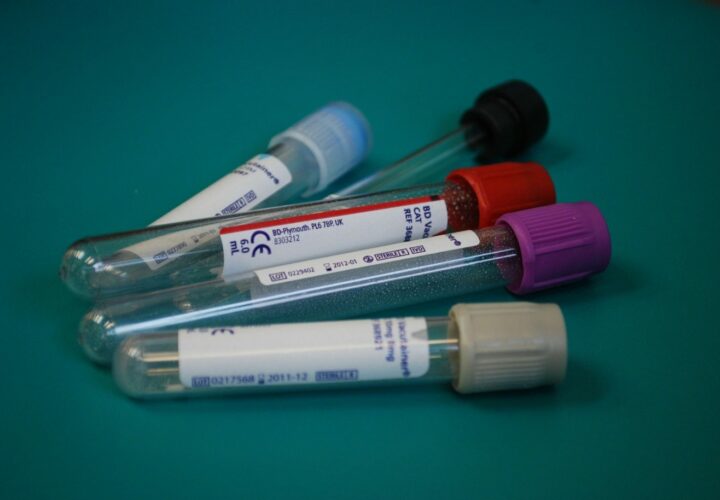This weekend, new batch of data from the TRAILBLAZER-ALZ trial for Eli Lilly's Alzheimer's drug donanemab was released, upholding the treatment's ability to affect both beta-amyloid and tau, and bolstering hopes about its game-changing possibilities.
(UPDATED Sat. March 13, 2021) In January, excitement rippled through the Alzheimer’s community with drugmaker Eli Lilly and Company’s announcement that their experimental drug donanemab appeared to successfully slow cognitive decline in patients with the early symptoms of Alzheimer’s. Those ripples grew into waves, as shares the company’s stock began trading at 24 times earnings expected over the next 12 months — what financial analysts are calling “one of the strongest multiples in big pharma.”
This weekend at a virtual conference of Alzheimer’s researchers and in the New England Journal of Medicine, the company released new data, shedding further light how effective, and how safe the drug is for people living with early-stage Alzheimer’s and confirming the drug will continue to move forward, offering good news not only for the drugmaker and for patients who would eventually benefit from donanemab, but for the broader research community, confirming the drug’s approach and paving the way for others like it.
The drugmaker’s TRAILBLAZER-ALZ clinical trial is a relatively small, randomized, placebo-controlled, double-blind, multi-center Phase 2 study measuring the safety, tolerability and efficacy of donanemab in patients with early symptomatic Alzheimer’s. Trial results announced in January indicated that donanemab slowed down cognitive decline by 32 percent, compared to a placebo, meaning that people with symptomatic Alzheimer’s in the trial sustained the same level of cognitive skills after 18 months of donanemab treatment as the placebo group showed after 12 months. The drug “has been shown to rapidly result in high levels of amyloid plaque clearance, as measured by amyloid imaging,” the company said in a January press release.
The data released this weekend was more detailed, showing that the initial encouraging results were still reflected in different markers of the disease’s progression, and that they were relatively consistent across the trial, bolstering hopes about its efficacy.
The study also revealed what appears to be a significant decrease in tau protein tangles in the brain — another key Alzheimer’s biomarker.
“Tau has become increasingly validated as a predictive biomarker for Alzheimer’s disease progression, as shown again in this trial,” Dr. Liana G. Apostolova, an Alzheimer’s Disease Research at Indiana University School of Medicine, said in a press release. “A key insight of the results from the TRAILBLAZER-ALZ study is that donanemab not only significantly reduced the amount of amyloid deposition in these patients but also slowed the clinical progression of the disease suggesting that this could be a disease-modifying therapy. We believe these amyloid and tau imaging data lay the foundation for precision medicine-based Alzheimer’s disease treatments.”
Why were experts skeptical about Eli Lilly’s Alzheimer’s drug before this data release?
The New England Journal of Medicine published an editorial by researchers who felt that the improvement was indeed statistically significant, but who noted that it still failed to meet the pre-stated objective of showing a 50-percent reduction in trial participants’ cognitive decline.
Initial hedging from experts following January’s announcement of early results was based on the fact that the study is considered small, involving just 272 patients. Further, experts were hesitant to get overly excited because donanemab’s drug target — the clumps of beta-amyloid protein commonly found in the brains of people with neurodegeneration — has been increasingly called into question, especially after Biogen’s aducanumab, which takes the same approach, has had a rollercoaster of a clinical trial phase and subsequently received an unexpectedly negative response from a panel of expert advisors to the Food and Drug Administration on the drug’s anticipated FDA approval decision just a few months ago.
Researchers have also asked questions about the drug’s safety. The new data maintains its safety meets standards; noted side effects have included “amyloid-related” swelling in the brain.
Yet, Eli Lilly’s TRAILBLAZER-ALZ study has been hailed for its innovation, taking new approaches to both enrollment and to dosing — advantages the drug could have over other drugs that take a similar approach. They confirm it is too early to give up on beta-amyloid, indicating that rather, the logistics of when and how such treatments have been administered to people were the pitfalls of previous efforts.
Eli Lilly maintains the results are remarkable: “Every way that we look at the data, we cut the data in many different ways to try and look to see if there’s some anomaly that can explain the results other than a successful drug, and we just don’t see it,” Eli Lilly Chief Scientific Officer Dan Skovronsky, told Barron’s. “That’s different than every other Alzheimer’s study to date.”
Finding an effective disease-modifying therapy for Alzheimer’s has been heartbreak after heartbreak for the research and drug development communities, sprawling over decades, costing billions, and leading to failed trial after failed trial. It has been nearly 20 years since the FDA approved a new drug to treat the disease.
“We slowed the disease down by about a third,” Skovronsky told the Wall Street Journal. “In an 18-month study we’ve given them six months of less decline. Of course it’s a 10-year disease. The question is over 10 years could you give them back three years.”
Alzheimer’s Drug Discovery Foundation Founding Executive Director and Chief Science Officer Dr. Howard Fillit is among the experts encouraged by the news: “The combination of changes in Alzheimer’s biomarkers and the slowing of clinical symptoms of the disease seen in this study is promising,” he said, adding that donanemab could offer the potential for a disease-modifying therapy that can help patients maintain cognitive abilities and their independence longer, if the results are confirmed in the larger trial, now underway. Echoing the broader research community, he said, “We eagerly await results from future trials.”






My husband Larry us 77 years old and suffer a Hemorrhagic stroke in 2018 since then he has been mentally effected by all this and it just seems to over power his health. So in doing some other test they determine that he now has Vascular Dementia and from reading up in Alzheimer these two are related diseases. I am trying to be proactive U love my husband but we really could use some help. Would Larry be a good candidate to experiment this new drug Donanemab? If so please please email me. I am at my last hope if researching a way to help him.
I’ve had 20 doctors and tons of tests but still not sure of my diagnosis. Neuropathy, narcolepsy, seizures, Alzheimer’s and polymyalgia rheumatica. The neuropathy is certain and also the polymyalgia rheumatica.